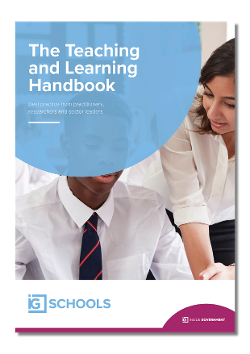Exploring Knowledge in the National English Curriculum
Written by Dr Bethan Marshall, Senior Lecturer in English Education, Kings College London
I find the notion of knowledge in the English curriculum hugely problematic. I have been known in the past to rail against knowledge per se by sighting Gradgrind in Hard Times. Gradgrind is the utilitarian purveyor of facts (and so knowledge of a kind) and is pitted against Sissy, a fairground girl who believes in the imagination, of fancy (which is harder to categorise under the heading of knowledge. But in doing so I am expecting that even if someone has not read that particular novel they have heard of Dickens and possibly, on this occasion, utilitarianism. I might be explaining a snippet of the plot too Gradgrind versus Sissy but then again this is only my interpretation of the novel. There may be other readings. And at that point I start to question again what a knowledge-based curriculum in English might be.
I could look at one of the lessons from inside the book where the inspector asks for a definition of a horse and a child suitably responds that it is a ‘quadruped.’ What is particularly interesting about the boy’s reply is that Dickens has taken his answer from a textbook, based on utilitarian principles, written at the time. The boy is simply quoting it. This information I only acquired recently and now I cite it whenever I talk of Hard Times. It is if you like a fact that has added to my knowledge of the writer of the book and demonstrates the satirical hand of the author even more than I had realised. Yet I am not sure that without it I ever thought that Dickens was praising the boy’s answer; I think I always thought that the boy has been trapped by an educational philosophy that requires ‘the realities’ rather than ‘wonder.’ So have I gained by knowing this piece of information? If I were an historicist, someone for whom the context in which a work is written is important, I would probably judge that I had but maybe not if I were a new critic, where the written text is everything.
If I were a new critic, however, and I had that piece of information about my person, it may make a difference to the confidence with which I read that passage. It’s hard to say. Certainly FR Leavis, one of the key new critics named Hard Times (and therefore Charles Dickens) as one of the books in The Great Tradition. He was attempting to name those authors, who had achieved canonical status in English Literature. And it is that status that marks out Dickens as one of those authors you should probably know about if you are to have ‘cultural literacy’. That phrase comes from ED Hirsch, an American, who is very keen that children should become ‘culturally literate’, though he now uses the descriptor ‘knowledge-rich’ because the notion of cultural literacy raised too many questions. One can only assume that this had something to do with whose culture a person was literate in and by default whose cultural experiences are you excluding from that definition, something rightly pointed out by critics of his position like Brenton Doecke and John Yandell.
Even if we were to accept the notion that some people are more knowledgeable than others, however, and like Nick Gibbs believe that, ‘Hirsch’s arguments provided us with a compelling social justice case with which to argue for a knowledge-rich curriculum’ we again have to ask what knowledge looks like in English. Part of the difficulty with Hirsch’s definition is that it appears to be about facts. If you know a lot about books you have a great deal of facts at your finger tips. And herein lies the irony of Hard Times. It may be canonical but one of the reasons Leavis selects it is that he agrees with Dickens’ satirical caricature of a man for whom facts are everything and the fact that he ‘never wonders’ is destructive. In the study of literature having the facts about a book or author is very different from ascribing meaning to them or understanding their significance in the first place
Professor Robert Eaglestone may be described as a knowledgeable man. He is after all a professor in English and yet he too asks about knowledge in the subject in his recent book Literature: Why it matters. In fact the whole book is eminently quotable in its analysis of why the study of literature is vital but the example he gives is of someone knowing that the chemical formulation of water is H2O but that being nothing like being engulfed in a rainstorm. Perhaps more importantly, however, he goes on to say that the study of literature is essentially dialogic in its nature. We learn about books through conversations with the text, with other critics and other people. Even the activity that is most done in classrooms across the land, that of ‘close reading’ he claims, is, or should be, ‘an open-ended, hard-to-pin-down and shared activity’. It is, ‘unlike that of other kinds of reading’ where you are trying ‘to cut down ambiguity, to avoid doubt’. Rather you are ‘responding to the simultaneous presence of many meanings’.
For this reason then Eaglestone also queries ED Hirsch’s position. He considers his pedagogy to be one where the students lack knowledge and the teacher gives it, as in an empty glass being filled or a computer downloading a new app or programme. There is little room for dialogue. I am with Eaglestone in this argument. Of course knowing stuff is important, but to quote Eaglestone again ‘knowing about literature means something different from knowing facts … Knowing literature is about experiencing a process, not… a collection of answers for a quiz or an exam’. And that process never ends.
Read more curriculum delivery via the IG Schools Teaching and Learning Handbook.



%20(1).png)
